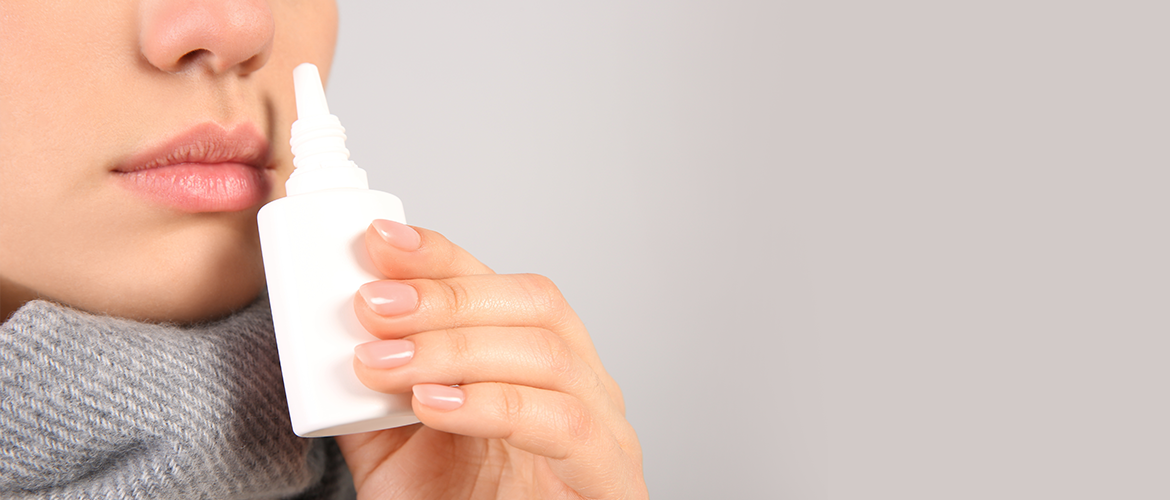Nasal sprays are commonly used to relieve the symptoms of a sinus infection or acute sinusitis. Sinus infections can cause nasal inflammation, congestion, postnasal drip, runny nose with green or yellow mucus, cough, and sinus pain, along with other symptoms.
To treat a sinus infection, the sinuses must be unblocked and drained. Nasal decongestant sprays relieve nasal congestion by clearing up the excess mucus from the upper respiratory tract. Most sinus infections can be treated with the help of nasal sprays and antibiotics. Sometimes your doctors may prescribe oral medications as well.
Types of Nasal Sprays
Not all nasal sprays work the same way, and it’s important to choose which one will provide you with the most effective relief.
Nasal Saline Sprays
If the air around you is cold and dry, you may have irritated nasal tissue. If this is the case, a saline nasal spray can help rinse away mucus and drain out bacteria and germs from the sinuses. This in turn will help in reducing inflammation.
Decongestant Nasal Sprays
In the early stages of a sinus infection or cold, a decongestant nasal spray can provide relief in the first few days. It is essential to use these sprays exactly as advised.
How does a Nasal Spray help during a Sinus Infection?
In response to viruses, allergies, and bacteria, the mucous membranes that line your nose and sinuses can become swollen and become congested. Your nose and sinuses may produce more mucus to protect you.
In response to viruses, allergies, and bacteria, the mucous membranes that line your nose and sinuses can become swollen and become congested. Your nose and sinuses may produce more mucus to protect you.
Nasal sprays help drain out the mucus from the nasal passage. They clear fluids from your nose by reducing inflammation in your blood vessels. As a result, they are frequently used to treat sinus infection symptoms. It is essential to use nasal sprays as directed by our allergists.
Precautions to prevent getting affected with a Sinus Infection:
Sinusitis is typically caused by a viral infection, and there are some simple precautions you can take to reduce your chances of getting a cold that leads to sinusitis. They are as follows:
- Wash your hands regularly with soap and warm water.
- Avoid sharing towels or household items (such as cups) with someone who has a cold.
- If you have come in contact with the cold virus, avoid touching your eyes or nose.
- Stay fit and healthy by eating a nutritious, well-balanced diet. Get enough sleep and engage in regular exercise.
While medications can help, many cases of sinusitis resolve on their own without medical intervention. Here are a few methods that can help you
- Getting plenty of rest
- Drinking plenty of fluids
- Avoiding allergic triggers and not smoking
- Use a Nasal Spray such as Naselin Nasal Spray, as it can help you unblock your nose in just 25 seconds and provide you relief for up to 12 hours.
- Incorporating nasal wash into your daily routine to enhance nasal hygiene.



